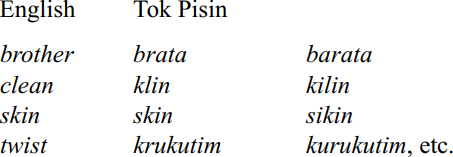

Grammar


Tenses


Present

Present Simple

Present Continuous

Present Perfect

Present Perfect Continuous


Past

Past Continuous

Past Perfect

Past Perfect Continuous

Past Simple


Future

Future Simple

Future Continuous

Future Perfect

Future Perfect Continuous

Passive and Active


Parts Of Speech


Nouns

Countable and uncountable nouns

Verbal nouns

Singular and Plural nouns

Proper nouns

Nouns gender

Nouns definition

Concrete nouns

Abstract nouns

Common nouns

Collective nouns

Definition Of Nouns


Verbs

Stative and dynamic verbs

Finite and nonfinite verbs

To be verbs

Transitive and intransitive verbs

Auxiliary verbs

Modal verbs

Regular and irregular verbs

Action verbs


Adverbs

Relative adverbs

Interrogative adverbs

Adverbs of time

Adverbs of place

Adverbs of reason

Adverbs of quantity

Adverbs of manner

Adverbs of frequency

Adverbs of affirmation


Adjectives

Quantitative adjective

Proper adjective

Possessive adjective

Numeral adjective

Interrogative adjective

Distributive adjective

Descriptive adjective

Demonstrative adjective


Pronouns

Subject pronoun

Relative pronoun

Reflexive pronoun

Reciprocal pronoun

Possessive pronoun

Personal pronoun

Interrogative pronoun

Indefinite pronoun

Emphatic pronoun

Distributive pronoun

Demonstrative pronoun


Pre Position


Preposition by function

Time preposition

Reason preposition

Possession preposition

Place preposition

Phrases preposition

Origin preposition

Measure preposition

Direction preposition

Contrast preposition

Agent preposition


Preposition by construction

Simple preposition

Phrase preposition

Double preposition

Compound preposition


Conjunctions

Subordinating conjunction

Correlative conjunction

Coordinating conjunction

Conjunctive adverbs


Interjections

Express calling interjection


Grammar Rules

Preference

Requests and offers

wishes

Be used to

Some and any

Could have done

Describing people

Giving advices

Possession

Comparative and superlative

Giving Reason

Making Suggestions

Apologizing

Forming questions

Since and for

Directions

Obligation

Adverbials

invitation

Articles

Imaginary condition

Zero conditional

First conditional

Second conditional

Third conditional

Reported speech


Linguistics

Phonetics

Phonology


Semantics


Pragmatics

Linguistics fields

Syntax

Morphology

Semantics

pragmatics

History

Writing

Grammar

Phonetics and Phonology

Semiotics


Reading Comprehension

Elementary

Intermediate

Advanced


Teaching Methods

Teaching Strategies
Morphological processes
المؤلف:
Geoff P. Smith
المصدر:
A Handbook Of Varieties Of English Phonology
الجزء والصفحة:
725-40
2024-04-29
1006
Morphological processes
There is little evidence of morphophonemic processes in Tok Pisin. Unlike Bislama, the -im suffix appears to be unchanged with differing root vowels. However, the case of epenthetic vowels separating consonant clusters described above may be worth investigating further. Pawley (1975) noted that a number of processes could be considered as possibilities for determining the nature of epenthetic vowels. The first is simply echoing an identical form of the stressed vowel, thus producing alternations such as the following:

However, in other cases, this could not explain the choice of vowel, as in

Similarly, clusters in final position may insert epenthetic vowels which differ from than the stressed vowel:

In cases such as these it appears that /i/ is inserted in certain specifically defined phonetic environments, for example, in final clusters where /s/ is one element, or vowels other than /a/, unless immediately followed by /i/ or /u/ (Pawley 1975: 224).
 الاكثر قراءة في Phonology
الاكثر قراءة في Phonology
 اخر الاخبار
اخر الاخبار
اخبار العتبة العباسية المقدسة

الآخبار الصحية















 (نوافذ).. إصدار أدبي يوثق القصص الفائزة في مسابقة الإمام العسكري (عليه السلام)
(نوافذ).. إصدار أدبي يوثق القصص الفائزة في مسابقة الإمام العسكري (عليه السلام) قسم الشؤون الفكرية يصدر مجموعة قصصية بعنوان (قلوب بلا مأوى)
قسم الشؤون الفكرية يصدر مجموعة قصصية بعنوان (قلوب بلا مأوى) قسم الشؤون الفكرية يصدر مجموعة قصصية بعنوان (قلوب بلا مأوى)
قسم الشؤون الفكرية يصدر مجموعة قصصية بعنوان (قلوب بلا مأوى)


















